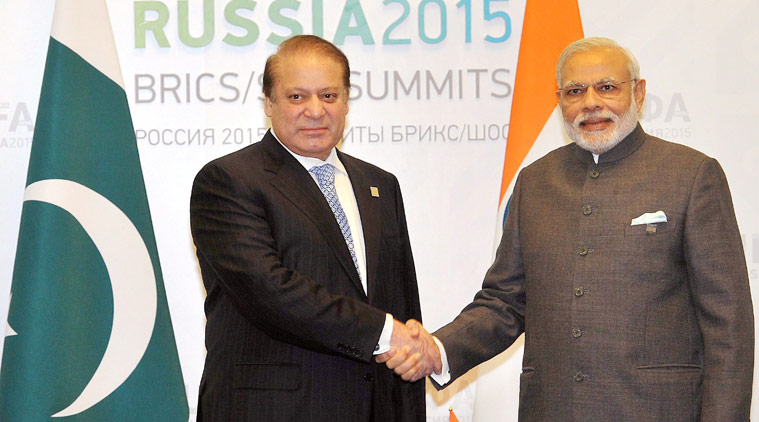
Last month, India and Pakistan were accepted as full members of the Shanghai Cooperation Organisation (SCO), a platform to discuss politics, economics and security matters in Eurasia. While some observers doubt the organization’s importance, the step is likely to have three main beneficiaries: China, Russia, and the region as a whole.
Benefits for Beijing
India’s and Pakistan’s inclusion are good news for Beijing, as it turns the organization into an ideal negotiating platform for China’s regional investment plans. Once sanctions on Iran will be lifted, Tehran’s accession seems only a question of time. An expanded SCO allows China to promote the Silk Road Economic Belt, China-Pakistan Economic Corridor (CPEC), Bangladesh-China-India-Myanmar (BCIM) Corridor and Central Asia-China Gas Pipeline with policy makers in Delhi, who regard China’s growing presence in the region with suspicion. China’s Silk Road Fund in particular may be seen as a threat by Russia and India, who will rightly interpret China’s efforts as a challenge to their own attempts to assume regional leadership.
From a geopolitical point of view, the organization’s significance (though still largely symbolic) is often seen as a potential counterweight to the Western security institutions, primarily NATO. Yet contrary to some would expect, the SCO, which was founded in 2001 in Shanghai by the leaders of China, Kazakhstan, Kyrgyzstan, Russia, Tajikistan, and Uzbekistan, will not rival or balance NATO frontally. Rather, it provides an alternative platform that will seek to play an increasingly important role in the agenda-setting process of geopolitical issues that affect Asia – ranging from terrorism emanating from Afghanistan and instability in Central Asia to China’s attempts to finance the region’s physical integration. The question of whether China still prioritizes SCO in this context is secondary: Rather, it will provide Beijing with additional autonomy and yet another option for forum shopping.
Benefits for Moscow
For Moscow, the organization’s benefits are more basic. The SCO’s mere existence reduces the West’s capacity to diplomatically isolate countries that it believes do not play by the rules. Russia may not always get what it wants in the SCO – particularly now that India has joined the grouping – but its membership increases its legitimacy and reduces its dependence on Western partners (even though it cannot compensate for the economic losses generated by the sanctions). India’s accession increases the SCO’s standing: Not only does it now include the majority of people in Asia (and a sizeable portion of mankind), but, including the world’s largest democracy, it can no longer be seen as a club of autocrats.
The organization has often been understood in the context of defending autocracy and limiting US influence in the region, and in 2005, the group called on Washington to set a timeline for the removal of its military bases in Central Asia. Russia’s Foreign Minister Lavrov has argued that the SCO is a key element of a new “polycentric world order.” At the Dushanbe summit in 2000, members agreed to “oppose intervention in other countries’ internal affairs on the pretexts of ‘humanitarianism’ and ‘protecting human rights;’ and support the efforts of one another in safeguarding the five countries’ national independence, sovereignty, territorial integrity, and social stability.”
During summits, discussions usually revolve around Central Asian security-related concerns, often describing the main threats it confronts as being terrorism, separatism and extremism, and policy responses are sought in the realm of military cooperation, intelligence sharing, and counterterrorism. Regular military exercises are being held since 2003. In 2014, China hosted the SCO’s largest-ever series of military drills, which included China and Russia conducting joint naval exercises in the Mediterranean. That may be little more than symbolism, but matters greatly to Russia, in need of demonstrations of support.
The Shanghai Cooperation Organization is in the midst of a broad transformation as it has started dealing with economic issues, including the potential creation of an SCO development bank. Other new issues concern infrastructure, transnational border and water disputes, and cultural exchange programs. Russia has also proposed linking the Eurasian Economic Union (EEU), which consists of Armenia, Kazakhstan, Belarus and Russia, with China’s Silk Road Economic Belt.
Benefits for the region
All these topics will play a decisive role in the geopolitical future of Eurasia, a region that seems to regain its importance as Russia turns its back on the West, and as China is articulating its strategy to strengthen its presence in Central Asia and beyond. Asia is a region with a relatively low institutional density, and increasing the number of high-level fora that bring leaders together must be welcomed, considering the many potential points of friction that exist between countries in the region. In this sense, the Ufa Summit already produced a very tangible benefit — have India’s Narendra Modi shake hands with Pakistan’s Nawaz Sharif, during what was the first meeting between the two leaders since May 2014 and came after increased border hostilities in the past few months and India’s cancellation of secretary-level talks last year.
Read also:
OBOR: China’s Pivot to Eurasia
China’s Silk Road Fund: Towards a Sinocentric Asia
CICA: Another step towards a Post-American security architecture in Asia?
Photo credit: PTI








